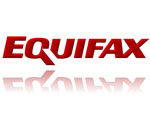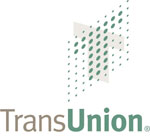| The US Secret Service estimates $5 billion a year in the United States alone is the toll of check fraud. In fact, the chief of the agency's financial crimes division calls check fraud "the number one way criminals today are attacking our financial systems." |
Check Fraud covers three broad categories.
Bad Checks
- A bad check is a check that is given for immediate payment for goods, cash, or services and is returned by the bank due to insufficient funds, or because the account was closed.
- Example: A person wrote you a check for $1,500.00 to purchase an item that you were selling for $1,500.00. Your bank returned the check to you saying the party had insufficient funds to cover the check.
Forged Checks
- A forged check is one that someone has forged the signature of an authorized party.
- Example: Someone steals one of your personal checks and utters it for cash by signing your name on the bottom without your permission.
Counterfeit Checks
- A counterfeit check is a check that a bank or financial institute has determined is not real.
- Example: A person wrote you a check for $1,500.00 to purchase an item that you were selling for $1,500.00. Your bank notified you that the check is counterfeit or the account does not exist.
NOTE: For prosecution purposes a counterfeit check is considered a forged check.
- Example: A person wrote you a check for $1,500.00 to purchase an item that you were selling for $1,500.00. Your bank notified you that the check is counterfeit or the account does not exist.
- A check in payment of accounts due for a past debt.
- A check given in payment for a previously given bad check.
- Postdated checks.
- A check received through the mail.
- A check given in payment for rent.
- A check that you "hold" at the request of the maker.
- Two party check. (Unless it can be established that the endorser is a party to a scheme to defraud.)
- A check that the holder accepts after a disclosure by the maker, at the time of delivery of the check, that there are insufficient funds in the account to cover the check.
- Stop payment checks.
- Partial payment checks.
If you received a bad check, follow these steps:
- Send a letter to the check writer informing them of the bad check, and demand payment. This letter must be sent to the address on the check, via certified mail return receipt requested, before charges can be sought for the individual. The Code of Virginia requires the 5 day demand letter to be sent and authorizes charges even if the person refuses to accept the letter.
- Make a copy of letter and save your postal receipt.
- The U.S. Postal Service will deliver your return receipt with signature confirmation, or return the letter unclaimed. Keep this receipt as it will be needed for prosecution.
- File a police report.
If someone forged your name on checks, you should:
- Contact your financial institution and let them know you have been the victim of check fraud.
- Close all accounts that you feel could be compromised.
- Follow-up every phone call in writing.
- Ask for verification that the disputed account has been closed and the fraudulent debts discharged.
- Keep copies of documents and records of your conversations.
- Have your bank notify the check verification service in which they do business.
- Contact the three nationwide consumer credit reporting companies and place a Fraud Alert on your credit report. Once you place a fraud alert, creditors are required to verify the identity of a person claiming to be you, before extending credit to them.
-



Equifax: 1-800-525-6285
http://www.equifax.com
P.O. Box 740241,
Atlanta, GA 30374-0241
Experian: 1-888-397-3742
http://www.experian.com
P.O. Box 9532
Allen, TX 75013
TransUnion: 1-800-680-7289
http://www.transunion.com
P.O. Box 6790
Fullerton, CA 92834
- Since most check fraud starts with the theft of a check, you should keep your checks as safe as possible.
- Review your checking accounts for fraudulent transactions.
- Always write checks with a felt tip pen; never use ball point pens. Several manufacturers actually make pens designed to prevent check washing.
- Don't put bills paid with checks inside your mailbox for postal pickup.
- Fill in the payee line and amount line completely on any checks you write. Do not leave blank spaces that someone can alter.
- Review your credit reports regularly. The Fair and Accurate Credit Transactions Act (FACT Act) requires the three major credit bureaus to provide you with one free credit report a year. The three major consumer credit reporting companies created www.annualcreditreport.com to provide consumers with free credit reports from all three companies.

